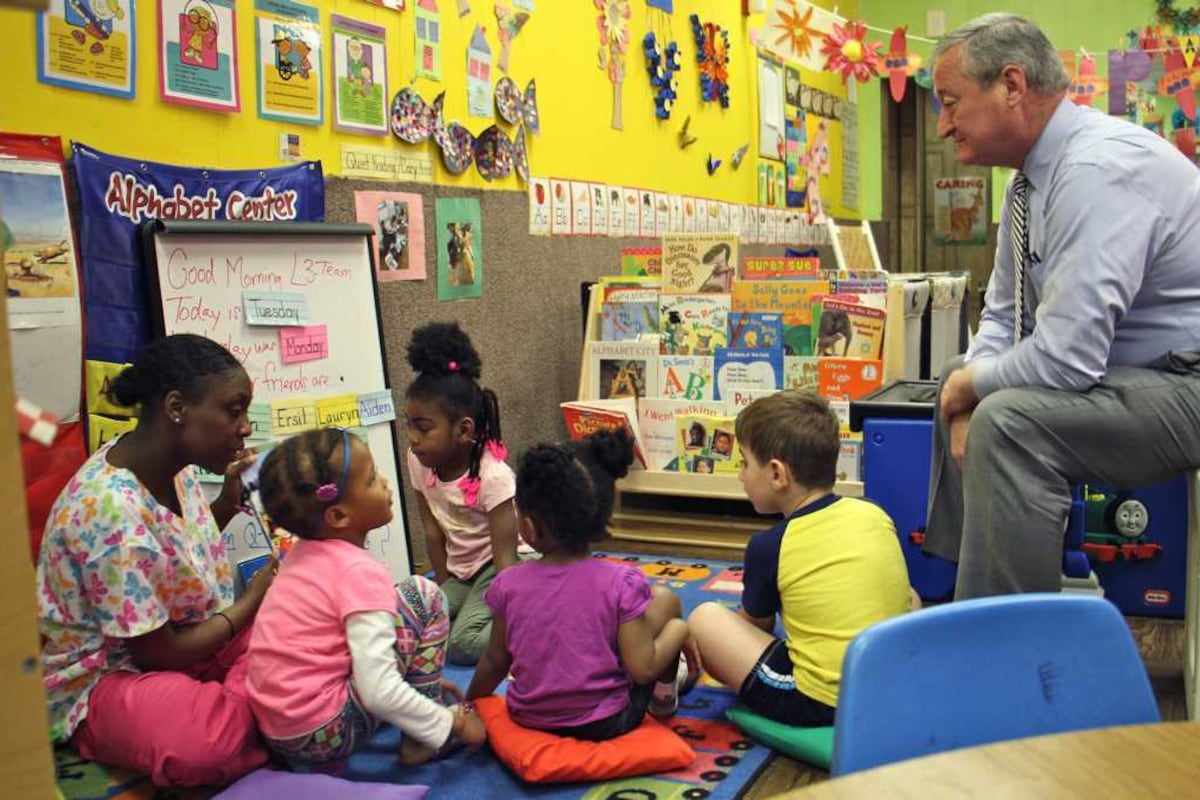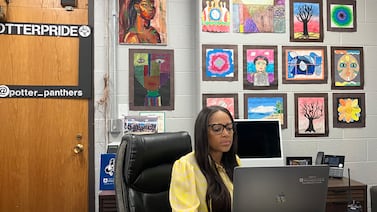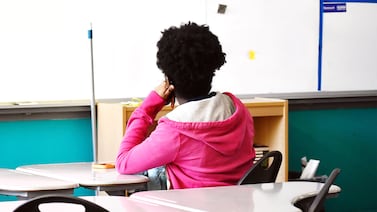Ingrid Caitlin has been teaching young students for more than 50 years.
Now the lead pre-kindergarten teacher at Little Einsteins Early Learning Center, she joined parents, principals, and education advocates Wednesday to celebrate the five-year anniversary of the Philly pre-K program, which provides free pre-K to thousands of students across Philadelphia.
“I think pre-K helps kids to be more productive in life,” Caitlin said as she ushered a group of young students onto Einsteins’ playground.
The PHLpreK program currently funds 3,300 slots for 3- and 4-year-old students in Philadelphia. The program started in 2017 with about 1,000 students and has served 6,000 students since its launch. Donna Cooper, executive director for Public Citizens for Children and Youth, said the program hopes to enroll 4,100 students in September and up to 5,000 next school year. When the program launched, it aimed to serve up to 6,500 students.
Efforts to increase enrollment in the program have slowed, in part, due to a lack of funding. PHLpreK is funded by the city’s beverage tax, which imposes a 1.5 cents-per-ounce fee on sodas and other sugary drinks bought within city limits. Revenue from the beverage tax declined about 15% during the pandemic.
The tax was the first of its kind in a major U.S. city, and it has remained controversial since passing five years ago. The tax was slammed by beverage companies and faced a challenge in the state supreme court, but it was lauded by some elected officials, such as Pennsylvania Gov. Tom Wolf and Nancy Pelosi, speaker of the U.S. House.
“Over the last five years, thousands of children have gotten ready for school and a lifetime of success, and we’re here today to mark that,” Cooper said.
Access to early childhood programs is also an issue of racial equity, Cooper said. Far more white and wealthy families have access to pre-K than low-income Black and brown families, and the city’s introduction of free pre-K programs can help level the playing field, she said.
“If we want Black and Hispanic children in this city to have a shot at the equal future of their white peers, we need pre-K,” Cooper said. “Philly pre-K is not just an investment in early childhood, but it is an investment in civil rights.”
Caitlin said one of her favorite parts of teaching pre-K over the years has been watching her former students — many of them from disadvantaged backgrounds — grow up and succeed.
“I’m just really proud to work here at Einstein,” Caitlin said.







